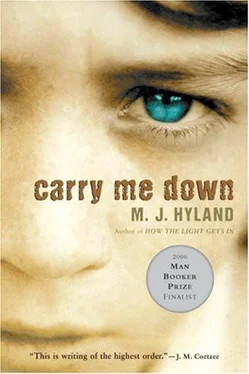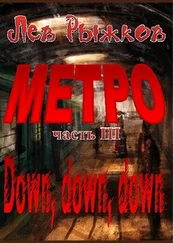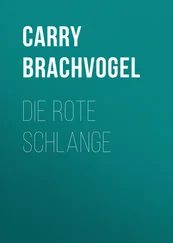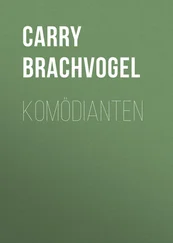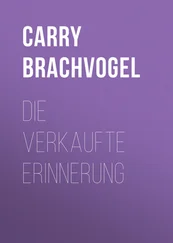As I get closer to our block, I see one of the Ballymun gangs at the bottom of our stairwell. They are teenage boys, a few years older than me. They lean against the wall and smoke; laughing and swearing and waiting for people to pass so that they can say something obscene. Even though none of the boys is as tall as me, I head for the lifts, in spite of the terrible smell, to avoid them.
I wait for the lift. I know the walls will be sprayed with vomit and urine. It is sometimes several days before the stinking mess is cleaned up with a bucket of water and mop or licked clean by dogs.
The urine is usually sprayed in the corners of the lift walls. It is thick and sticky, so it doesn’t travel very far. I have never before seen urine so orange, so sticky, so thick.
When the lift arrives, I pick the shopping up and get in. There is a girl in the lift, squatting on the floor as though she means to go to the toilet. She is my age, about eleven or twelve, and she looks up and smiles at me. I expect her to stand, pull up her pants, get out, but she stays where she is and continues to squat.
As we travel up to the twelfth floor, I look down at her white underpants, stained with brown marks, stretched around her bruised knees. I wonder if she’ll know that I have looked at the stains in her pants and I’m embarrassed; more embarrassed, I think, because she is not.
She smiles at me as she lifts herself up and presses the button, and I smile back. She runs from the lift on the eleventh floor, leaving behind a small black piece of shit.
My mother is in bed even though it is not yet night-time, not yet dark. She’s not asleep, but on her back, looking up at the ceiling. I stand by the door and tell her about the girl shitting in the lift.
‘What did she look like?’ she asks.
‘She had very white teeth,’ I say.
But perhaps I think her teeth were white because her lips were so red.
‘I see,’ says my mother, as she closes her eyes.
During tea, we hear the sewing machine upstairs. There are three young women who live in the flat directly above ours and one of them sometimes runs a sewing machine from five o’clock until after I go to bed.
My father laughs as he says, ‘Those three up there. They’re almost blind.’
‘Are they?’ asks my mother.
‘Yes, and they’re sisters. They can barely see past the end of their noses.’
‘But if they are nearly blind, how can they use a sewing machine?’ asks my mother.
‘That’s the one who can see the most,’ he says, ‘and she only sews tablecloths, which doesn’t take much skill.’
‘How do you know?’ I ask.
‘I work with a man who told me about them,’ he says. ‘They’re quite well known around here. Some say their parents were first cousins.’
‘How do they make their living if they’re blind and don’t have husbands?’ I ask.
‘How would I know?’ says my father. ‘How does any woman get on in this world that people allege belongs to men?’
My mother hits the side of her cup with a spoon and he clears his throat.
‘Only joking,’ he says. ‘Only joking.’
But later, when we hear them making noise, my father calls them ‘the three blind mice’ and he sings the nursery rhyme while looking up at the ceiling.
The next morning, as we are having breakfast, we hear the women above, and it sounds as though they are beating the floor with broomsticks.
‘Ah, the three blind mice walking about with their canes,’ says my father.
But I’m sure I saw them yesterday getting out of the lift. Three women in their early twenties, with long dark hair and dark eyes, and who reeked of strong perfume. I didn’t see them using canes or wearing dark glasses. They looked normal to me, and two of them were wearing high heels.
I frown. My mother stops eating.
‘They’re not legally blind,’ he says. ‘If they were legally blind they’d be in a home with spastics and seeing-eye dogs.’
It is the afternoon, and I am with my father. I see the three women again, near the stairs outside our flat. We are painting our front door. I stand on the mat and help him by holding the tin of paint.
He stops painting and grabs my shoulder. ‘Three blind mice at twelve o’clock,’ he says.
‘What?’ I say.
‘Up ahead,’ he whispers, ‘three blind mice at the end of the hall.’
As my father whistles the tune of ‘Three Blind Mice’, the women walk towards the stairs on the other side of the tower.
‘Let’s follow them,’ I say.
One of them hears me and turns. She doesn’t look annoyed; she looks amused, and she stops walking for a moment. I look at my father. He keeps on whistling and he stares at her until she turns and walks away with the others. He watches them until they are out of sight.
Aunty Evelyn comes to visit. She brings a box of cream cakes and a poster for the hallway wall.
She takes a close look at everything in the flat and, and when she has finished, she stands by my parents’ wedding photograph, which sits on the dresser near the kitchen door.
‘I see you brought the glamour of the past with you,’ she says.
‘Don’t you keep your wedding photo out?’ asks my mother.
‘Not at all. It’s too much like seeing a pair of ghosts.’
Aunty Evelyn puts her hands on her hips. She will not leave without a fight.
‘The wallpaper’s a lovely shade of pink and with those little bits of yellow and those … those sticking-out yokes.’
‘Stamens,’ I say. ‘They’re called stamens.’
We go into the kitchen and sit at the table with a pot of tea. My father has a book on his lap, The Science of Understanding the Depressive Mind . It looks like a prop there, nothing more than a place for him to rest his hands. I haven’t seen him read anything since we arrived.
My mother yawns and Aunty Evelyn goes on talking.
‘Did you hear that Dr Behan died last week? He’s gone to God. Oh, he always respected the modesty of his patients. He never saw a female patient under the age of sixteen without the company of the mother, and the same for the little boys.’
My mother says nothing and, instead of speaking, she yawns again.
‘John, stop scratching your head,’ says my father.
The shouting from next door starts; a woman screams, and Aunty Evelyn looks at my mother.
‘When you’re used to that kind of noise, I think it’ll be nice,’ she says. ‘Maybe it’s a bit too warm with the heat coming up through the floor, but, overall, it’s really very cosy. I think you’ve made it very nice.’
I can see by my mother’s frown that she knows, as I do, that Aunty Evelyn is lying.
For the first time I wonder if I have inherited my gift from my mother, who sees what I see: Aunty Evelyn shrugs in the middle of the words, ‘It’s really very cosy’, and her body language doesn’t match what she is saying.
I have begun to sharpen my skills, master them. When I detect lies I get hot, around my ears and throat mostly, but I don’t feel sick. Eventually I will become a wizard. I have memorised more passages from books. Here is one of my favourites:
‘Most people will never recognise the signs and expressions of the liar. These facial expressions and gestures are involuntary and appear and disappear so rapidly that unless you have a very good eye — an instinct, a gift — you will never see them and you will never be able to detect lies.’
Aunty Evelyn goes on talking and seems too interested in my father’s job at the factory, where all he does is wear overalls and solder bits of metal together.
‘Just as well it’s only a temporary thing,’ says Aunty Evelyn, ‘something to tide you over.’
My father stands. ‘Nobody is going to die of a bit of manual labour,’ he says. ‘You make it sound like working in a factory was the curse of a stinking fistula.’
Читать дальше
